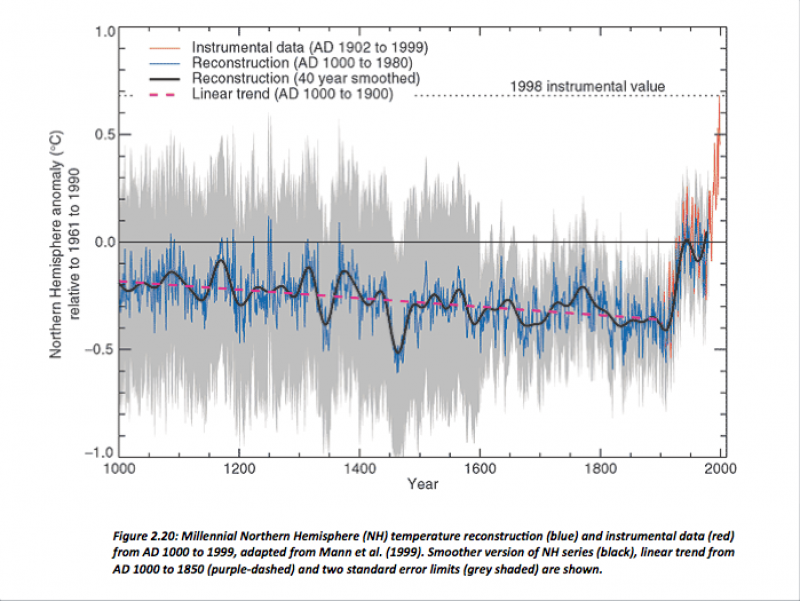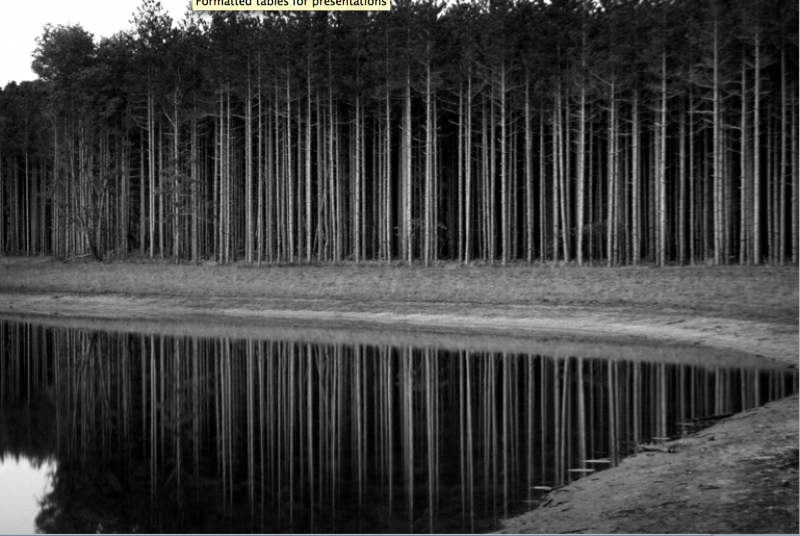Serendip is an independent site partnering with faculty at multiple colleges and universities around the world. Happy exploring!
English

a reflection on writing a comic book about writing a paper
This is a reflection on my third English paper for Anne, which took the form of a comic book and was never fully completed. I will be attaching scans of the pieces that had been completed SOON and using this space to outline where the comic will continue to go.
I chose to write a comic book for several reasons. The first reason was that I am interested in experimenting with forms of academic work that diverge from conventional assignments, such as essays and exams. In doing so, I hope to challenge the notion that these conventional assignments are the most adequate methods of measuring student growth and learning inside the classroom. By expanding our understanding of what a “paper” looks like, we can better serve the needs and strengths of diverse learning styles.

Natural Conduct
Having spent so much time this semester in and outside of our 360 contemplating connectedness, barriers, intersectionality, and porosity, I am finding myself in a sort of ‘flowing stream of suspended matter’ – very close to accepting the possibility that I will never truly find the right direction with which to ask the right questions and find the right answers to understand the world. There is a false sense of closure associated with our 360 coming to an end, yet I know that my life as a student and as an ecologically minded person is much more in the beginning stages. I am in a stream of questions and answers (that are never truly answers) that circle me back to discover that indeed, the same problems still exists in our world. Everything, for me, comes back to the relationship between being an individual and belonging as part of a group or society. I want to break out of this whirlpool. I have been having trouble understanding why I am so transfixed on this “me/us/them” theme, seeing as we are an eco-literacy 360 and this topic does not feel pointedly ecological. Exploring the connections we have with one another is important, but does not fully consider our connections to earth and the environment.

The Importance and Power of Language
“If you talk to a man in a language he understands, that goes to his head. If you talk to him in his language, that goes to his heart.”
-Nelson Mandela
There are two definitions to language, one is for lenguaje and the other is for idioma. One is the branch of communication, whether it is verbal, visual, or gestural. The other branch stretches out to dialect, tongue, accents, and our way of oral speech. Regardless of each definition, we ultimately use it all for the same objective, to communicate. We use language as means of connection, to convey and diffuse our experiences as close as we can get to sharing and describing without the other person actually being there. We give language the power of translating our experiences into words.

Seeing the Forest for More than the Trees: The Social Dimension of Environmental Justice
Small groups of people gather at the large coffee chain on the second floor of a Texas shopping center.1 Some are made up of teens and college students, some of older individuals, maybe groups of friends or coworkers, but no group seems to acknowledge the presence of any other. All of a sudden, twenty or so phones buzz or ring or chime and like clockwork, small groups of teens or students or coworkers all rise, make for the escalators, and walk quickly toward the corporate business interior of the complex. Someone gives a signal and the chanting begins: “No pipelines! No tar sands! No destruction of indigenous lands!” “Jobs at the [pipeline]? No lets can it! There are no jobs on a dead planet!” “What’s insane? This is insane! No eminent domain for private gain!” (Tar Sands Blockade). Within minutes protestors invade the offices of a corporate conglomerate working to construct a pipeline to carry tar sands oil from Alberta to Houston, a project that could and most likely will have devastating effects upon the natural environment not to mention the exacerbation of global climate change from increased anthropogenic carbon production–yet none of the messaging focuses on protecting “nature.” Rather, all of the chants engage with social issues: ignoring the land rights of first nation peoples, placing profit margins and the bottom line above health and safety, forcibly taking the property of people whose only crimes were living in an area a corporation suddenly decided in needs to own.

Reading Rilke: On Questions of Universality
The first time our Ecoliteracy 360 met was in December, in the English House lecture hall, where we talked about ourselves and our homes and where we were going to go throughout the next semester. The second time we met, we piled into two blue Bryn Mawr vans and drove 30 minutes and what might have seemed a world to Camden, where we spent the first half of the day gardening and the second half touring Camden’s water treatment facility and some of Camden’s streets and ending in one of Camden’s parks, where our guide, Michael, pointed out the environmental threats and innovations that surrounded us. This was our first 360 field trip, designed to help us learn about ecoliteracy, but even now I am hard pressed to say exactly what I learned that day. I came in from the outside and began to reevaluate my assumptions about a city I’d only ever heard talked about as poor and crime-ridden but, even though I did learn some things about Camden that I hadn’t known before, I think that day really started my semester-long process of changing the way I see the world. Perhaps the poet Rilke was describing something like this when he wrote:
And we: spectators, always, everywhere,
looking at everything and never from!
It floods us. We arrange it. It decays.
We arrange it again, and we decay.

Translating the World: Cloth, Communication, Survival
The islands are the trailing threads of India’s fabric, the ragged fringe of her sari, the ãchol that follows her, half wetted by the sea. (Ghosh 6)
The sari, an integral part of Indian culture, features prominently in Amitav Ghosh’s story of the Sundarbans, The Hungry Tide. In the quote above, Ghosh uses traditional Indian garments as a metaphor to talk about the shape and geography of the tide country, but the role of such textiles and of clothing in general plays many other substantial roles throughout the course of the story. As humans, we tend to take clothing for granted and forget the space it takes up in our life. Clothing is one of the major factors that distinguish humans from animals, and in many cases we use it to protect ourselves against the elements, against nature. In a book that holds so much commentary and insight about the debate of humans vs. nature (humanism/environmentalism), Ghosh gives many examples of the importance of clothing for human connection, communication, and survival.

Representation in Science: Bias and Negativity
What are the similarities and differences between the following images?

(Callaway)

(Callaway)

speech becoming synonymous with existing
This is the post that I had started after last week’s class and spoke about last Monday!
Bear with me as I seem to go in circles….
I was thinking about this after class- why is our first inclination upon recognizing the failures of language to give up on? Why are we so ready to claim that connection is impossible, simply because language does not always meet our needs of expression? I realized that the very rhetoric itself we employ to talk about these things is extraordinarily polarizing… this brought me back for a moment to a sense of hopelessness about the state of language and its connective potential; before I reminded myself that acknowledging that language can fail is not a reason to give up trying to connect or communicate- it is a call to be more attentive to the ways in which we attempt/do not attempt those connections; the words we do/or do not choose to utter. It is committing to the labor involved in creating and maintaining fulfilling connections …
Of course, I realize I have a particular stake in protecting language; a substantial part of my education the only thing I ever felt good at was “reading” language… which is why I spent most of my time at Bryn Mawr under the assumption that the only thing I could ever be was an English Major… being attentive to words and language is a critical tool in what I do on a daily basis.

Nature Strikes Back
In The Hungry Tide, I kept seeing the constant theme of nature's strength intertwining with humanity. I found the writing to be beautifully detailed and Ghosh made it possible for me to track Piya's, Fokir's, Kanai's travels in my own world created with his writing. Nature is constantly being intertwined with the events, and adventures the characters go through, inevitable. The value of human life and the value of nature seemed tied to me, unable to be one without the other. Life's constant attacks and misfortunes happen through nature's wildlife, like the attack sof the tigers and the tidal waves that drown several individuals.
The value of death and life are constant with the value of nature. Without nature, without wildlife, without it's cycle, we wouldn't be able to survive, to exist. It's all a routine, just like our lives. We are alive and walk among nature and nature is a part of our existence, but also a part of our death, the end of our existence. It's that powerful, I believe. A routine, a cycle not so obvious to aknowledge but a true one at that. What keeps us alive, can also end us.

"speaking in the voice of the Poet..."
In writing this and planning out what quotes I want to reference, I'm remembering that my book's pages are different than those of everyone else in this class, which continues for me the questions we began asking last class about language and translation. There is no way for any of you with your copies to find the exact page I refer to without me giving the chapter and you searching through the whole thing. There is an added level of inconvenience and disconnect beyond what would already exist by nature of me being one person understanding and expressing a quote one way and you being another person with a potentially different understanding.
Moving beyond that, I want to raise the importance of the poet Rilke, or "the Poet" as Nirmal most commonly refers to him in his journal. Much of The Hungry Tide is framed around Nirmal's descriptions of the Tide Country and the specific struggle over the island Morichjhapi, and he seems to root his understanding of the Sundarbans in Rilke's poetry: "...nothing escapes the maw of the tides; everything is ground to fine silt, becomes something new. It was as if the whole tide country was speaking in the voice of the Poet: 'life is lived in transformation'" (from end of chapter: Transformation). Also, quoting Rilke:


